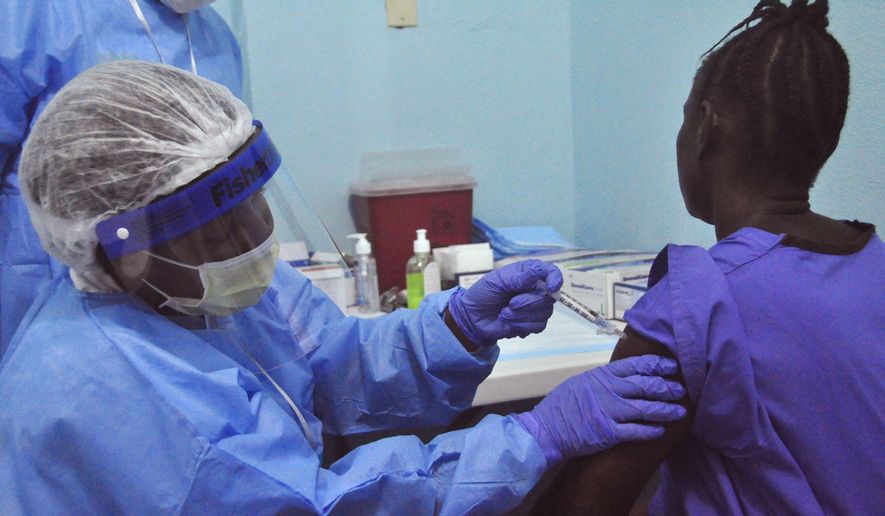President Obama marked a new phase in the fight against Ebola Wednesday, setting a deadline for the withdrawal of U.S. troops from West Africa and lauding aid workers on the cusp of victory over a lengthy outbreak that’s killed more than 9,000 people.
New confirmed cases of the deadly virus have dropped from about 1,000 per week in October to 150 in recent reports out of the affected nations, the administration said.
Mr. Obama said U.S. efforts directly contributed to the gains by rallying the global health community and proving that steady-minded Americans could “get the job done” in a tense environment. But he also said the U.S. military’s commitment will drop from an apex of 2,800 troops to roughly 100 by April 30, even as civilian aid workers remain to finish up.
“Our mission is not complete,” he said. “Today we move into the next phase of the fight: winding down our military response while expanding our civilian response.”
All told, the U.S. government deployed 3,500 personnel to the affected region during its 10-month commitment, including troops, officers from the U.S. Public Health Service and officials from the Centers for Disease Control and Prevention, National Institutes of Health and the U.S. Agency for International Development.
Among its accomplishments, the mission constructed 15 treatment units, beat back myths about Ebola and promoted safe burials that were critical to decelerating transmission, according to the White House.
The U.S. also played a key role in developing Ebola vaccines, which are on their way to field trials.
As transmission slows, decimated parts of West Africa are trying to rebuild their infrastructure and find care for thousands of orphans left by the epidemic.
Officials told Congress Wednesday that over 6 million Africans also face food shortages.
“All humanitarian crises require a recovery period,” Ambassador Steve Browning, a special Ebola coordinator, told a House Appropriations subcommittee Wednesday.
Lawmakers on the panel hailed U.S. personnel for heading to the front lines. But they urged the administration to spend dollars wisely as the effort winds down.
“We must ensure there has not been unnecessary duplication of effort,” Rep. Kay Granger, Texas Republican, said. “If so, we need to change course now and not wait for the next crisis to get it right.”
Mr. Obama’s guests at the White House announcement Wednesday included key officers and aid workers from the West African theater and Nina Pham and Amber Vinson — the pair of Dallas nurses who recovered from the disease, which they contracted treating Thomas Eric Duncan, the Liberian who became the first person to test positive in the U.S. for the virus. He later died.
Since then, officials have funneled people traveling from hard-hit countries to five international airports, where they are screened for fever and instructed to self-monitor for symptoms during the disease’s 21-day incubation period.
Homeland Security agents screened over 7,700 passengers from Oct. 11 to Feb. 2, yet only 15 of them were taken to a medical facility for additional evaluation, according to government data.
Shortly after the Dallas ordeal, the positive diagnosis of an aid worker who returned to New York City sparked fierce debate about whether mandatory quarantine rules in some states would keep Americans safe or undermine the fight at its West African source by highlighting the scary aspects of Ebola.
“There are those who like to fan fears,” Mr. Obama said Wednesday. “But over the long haul, America does not succumb to fear.”
⦁ Hannah Crites contributed to this report.
• Tom Howell Jr. can be reached at thowell@washingtontimes.com.




Please read our comment policy before commenting.